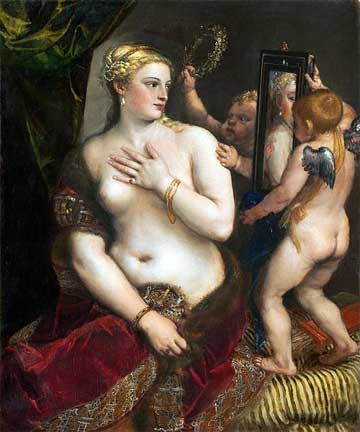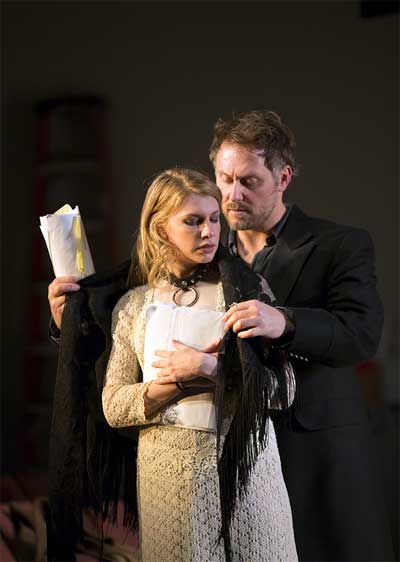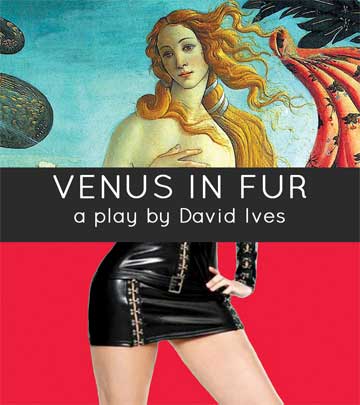Play (2010)
by David Ives
Directed by Daniel Goldstein
Huntington Theatre Company
Boston University Theatre
Boston, MA
January 3 – February 2, 2014
With Chris Kipiniak (Thomas), Andrea Syglowski (Vanda)

National Gallery of Art, Washington DC
Thomas is the author-director of a play called Venus in Fur and he is having trouble casting the role of one of the two main characters, Vanda, when someone named Vanda walks in late to an audition, struts her stuff and captures his attention, overwhelmingly.
David Ives got his reputation writing very short, witty plays. They are funny, charming and interesting, but they are long on setup, schtick and gimmickry as very short funny plays frequently tend to be.
In 2008, I did see a full-length play he wrote about the seventeenth century philosopher Spinoza, New Jerusalem, and it was not at all funny. It was good, dramatic and nuanced and did not make any particular attempt at wit but succeeded well in other ways. It paid far more attention to drama and character development than did the short plays which were full of quicker conceptual laughs.
This full-length play, Venus in Fur, is more like an expansion of those very short funny plays than like the Spinoza play.

Chris Kipiniak as Thomas
in “Venus in Fur”
Photo T. Charles Erickson
Courtesy of Huntington Theatre Company
Venus in Fur is, as Ives explains in a piece originally published on broadway.com, based on an original desire to write a dramatized version of the erotic novel The Story of O, published in France in 1954 by Anne Desclos under the pen name Pauline Réage. For various reasons, legal and dramatic, Ives redirected his attention to Venus in Furs (Venus im Pelz) by Leopold von Sacher-Masoch in Austria in 1870. Another sexual fiction, it features, in particular, sadomasochistic themes. The novella comes by that designation honestly since its auther, Sacher-Masoch, was the fellow who gave his name to the term masochism.
After originally writing the play for four characters, Ives got some feedback that led him to rearrange things, boil in down to two characters, and frame it as a play audition.
The self-referential last part smacks of the sort of gimmickry that populates Ives’ shorter plays. It makes for some conceptual fun, but, in the end, is more like dramatic machination than dramatic fulfillment.
The result is an evening (fairly short – ninety minutes without intermission) that is quite funny in some respects and satisfying as a conceptually intricate gag, but without a lot of subtlety or complexity in character or plot development.

“Venus in Fur”
Riverside Theatre
Iowa City, Iowa
Fall 2013
Andrea Syglowski, as Vanda, however, is a scream. She has to embody several different roles in one and she does it with panache. Her easy and accessible stage presence makes for a lot of funny moments and transitions.
Chris Kipiniak, as Thomas, is just the opposite, a stiff straight guy, until the very end when even he get to pull out the stops and draw some laughs. The straight man role is sometimes significantly harder than the comic one, and he manages to carry that part off pretty well. When those final scenes do come and he gets to improvise more broadly, he finally comes into his comedic own.
The set is large and fills the whole stage of the Boston University Theater, which seems like a vast desert with just these two actors on it. I thought the play generally might have come off better in a more contained theatrical space. Though full-length, its demeanor is much like Ives’ short plays, and seems naturally more intimate than this staging afforded.
– BADMan
Leave a Reply